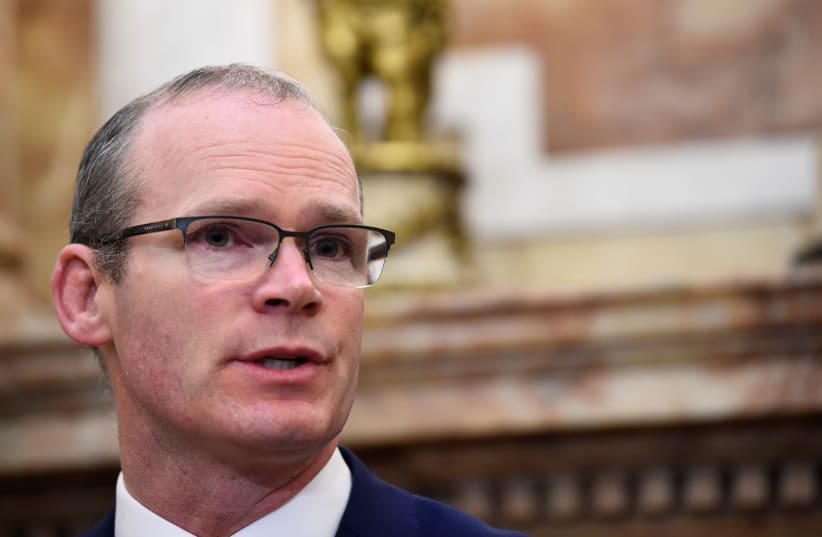In an interview with the Kan public broadcaster, Coveney said that the Irish government does not believe the bill “is a legally sound piece of legislation” because trade issues are regulated by the EU. As a result, he added, the government has prevented the bill from moving through Ireland’s lower house.
The bill has already passed the Senate, but to become law it needs to pass through the Lower House as well. There are five stages through which it must wind its way through the Lower House, and is currently “stuck” between the second and third stage.
Coveney met on Monday with both Prime Minister Benjamin Netanyahu and Foreign Minister Israel Katz. Israeli officials said that the gravity which with Israel views the bill was made clear to the visiting foreign minister.
Coveney, whose county is considered among the most critical of Israel in Europe, acknowledged in the interview that there was room for “new thinking” in approaching the Israeli-Palestinian issue.
“We will continue to advocate, yes, for new thinking, because I think a solution now is probably not the same as what a solution looked like 20 years ago,” he said. “A lot has happened in that time.”
At the same time, he added that the solution needs to be a “negotiated” one, “as opposed to an enforced solution on Palestinians, because they’re in a weaker negotiating position, perhaps, than Israel is.”
Coveney added that there needs to be a sense of equality and respectability in an agreement, otherwise it will not stand.
Coveney went to Gaza on Wednesday and announced Irish funding of €8.8 million for construction of a solar energy plant in the northern Gaza Strip that will provide energy to a wastewater treatment plant there. The Irish are joining with the French in this project.
In comments which he made at the site of the wastewater treatment plant, Coveney stressed that “many of these solar panels will stand in land previously designated as off limits by the Israeli authorities. Opening up this land for humanitarian uses, and particularly for solar installations, has huge potential in a place where land is so scarce.”
Coveney was referring to the restricted buffer zone close to the fence that extends for a few hundred meters to keep Palestinians away from the border.
This is Coveney’s fourth visit since taking office in 2017, and – before leaving Dublin – he said that this “reflects the importance I attach to the Middle East peace process, and the high priority that the government and the Irish people continue to give to this issue.”
